Evaluating the Ethics of Limiting Freedoms in Vaccination Policy
VerifiedAdded on 2023/06/18
|8
|2044
|304
Essay
AI Summary
This argumentative essay examines the ethical and moral implications of restricting sovereignty, freedoms, and social processes within national vaccination programs. It delves into bioethical principles such as autonomy, beneficence, non-maleficence, and justice, arguing that limiting these aspects is ethically unacceptable. The essay also applies ethical theories, including utilitarianism, deontology, and ethics-of-care, to support the argument. It concludes that national vaccination programs should respect individual rights and freedoms to ensure ethical and moral integrity, promoting better health outcomes for all citizens. Desklib offers this essay as a study resource, alongside a wealth of past papers and solved assignments for students.
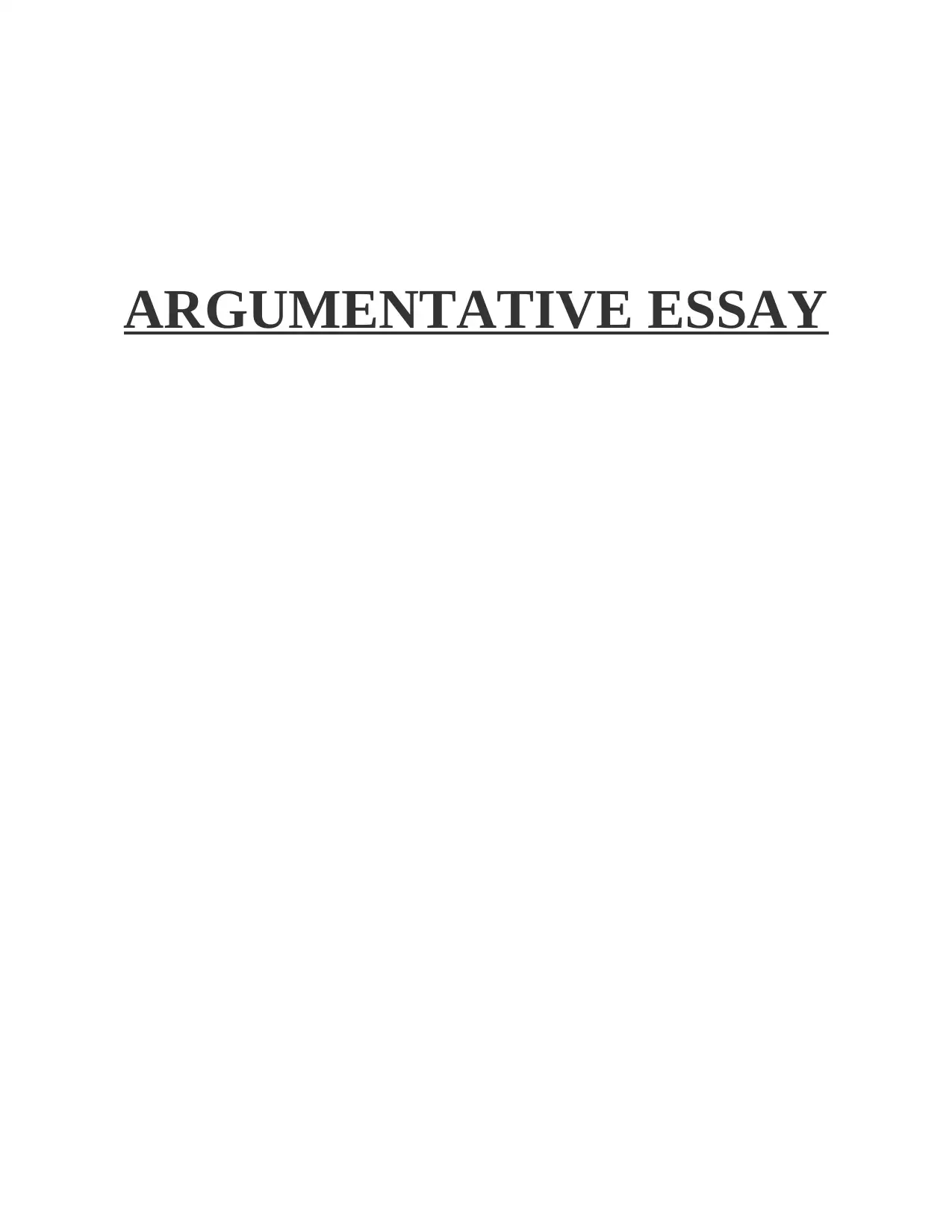
ARGUMENTATIVE ESSAY
Paraphrase This Document
Need a fresh take? Get an instant paraphrase of this document with our AI Paraphraser
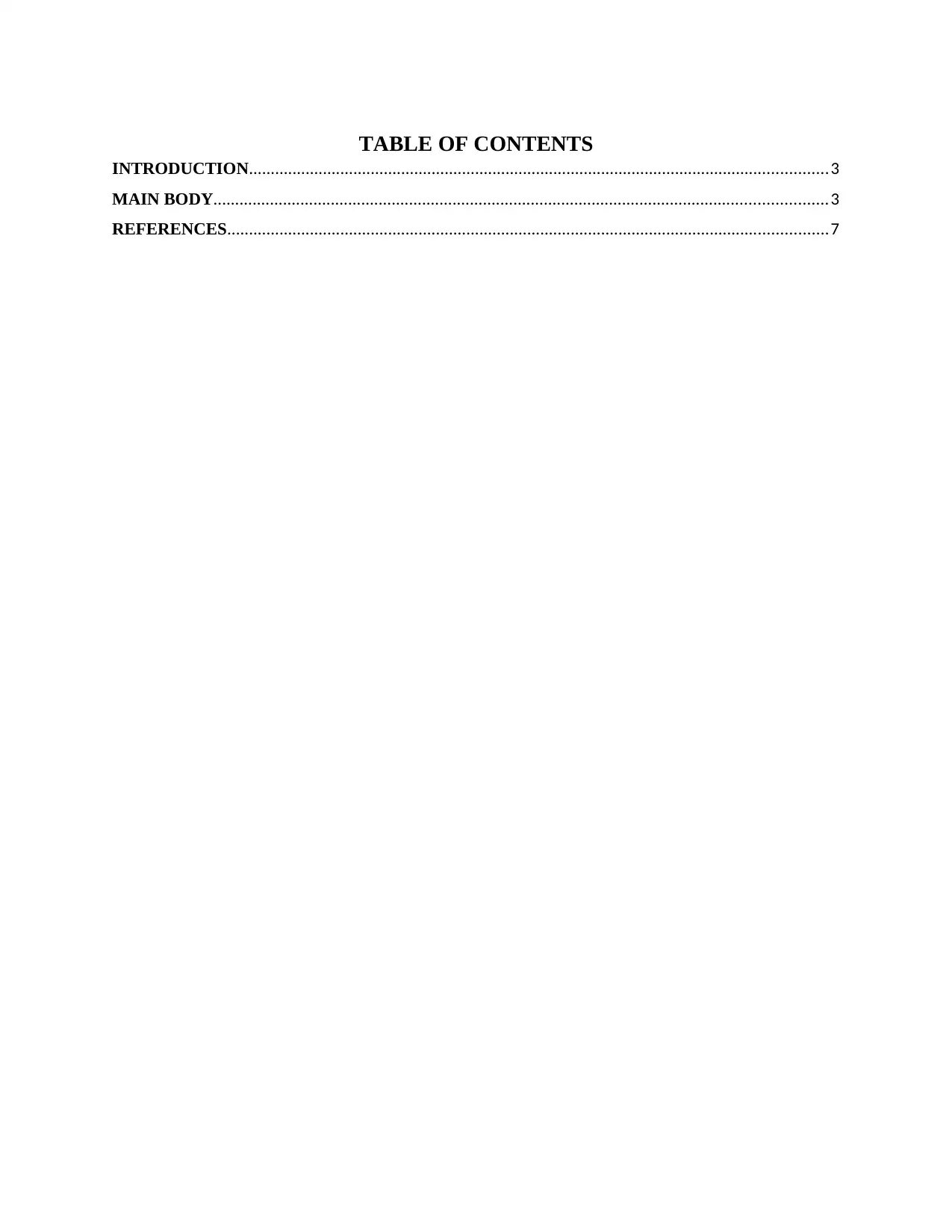
TABLE OF CONTENTS
INTRODUCTION.....................................................................................................................................3
MAIN BODY.............................................................................................................................................3
REFERENCES..........................................................................................................................................7
INTRODUCTION.....................................................................................................................................3
MAIN BODY.............................................................................................................................................3
REFERENCES..........................................................................................................................................7
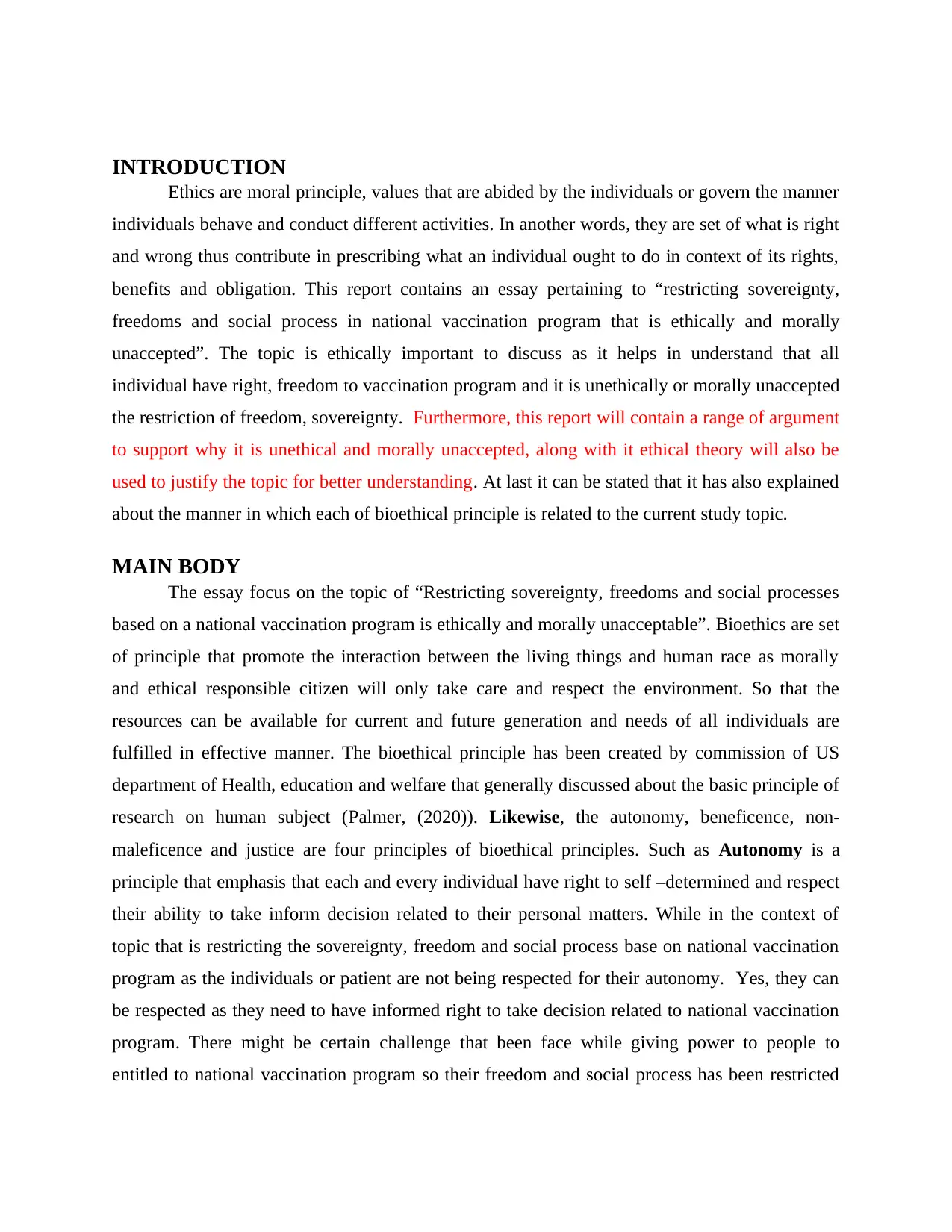
INTRODUCTION
Ethics are moral principle, values that are abided by the individuals or govern the manner
individuals behave and conduct different activities. In another words, they are set of what is right
and wrong thus contribute in prescribing what an individual ought to do in context of its rights,
benefits and obligation. This report contains an essay pertaining to “restricting sovereignty,
freedoms and social process in national vaccination program that is ethically and morally
unaccepted”. The topic is ethically important to discuss as it helps in understand that all
individual have right, freedom to vaccination program and it is unethically or morally unaccepted
the restriction of freedom, sovereignty. Furthermore, this report will contain a range of argument
to support why it is unethical and morally unaccepted, along with it ethical theory will also be
used to justify the topic for better understanding. At last it can be stated that it has also explained
about the manner in which each of bioethical principle is related to the current study topic.
MAIN BODY
The essay focus on the topic of “Restricting sovereignty, freedoms and social processes
based on a national vaccination program is ethically and morally unacceptable”. Bioethics are set
of principle that promote the interaction between the living things and human race as morally
and ethical responsible citizen will only take care and respect the environment. So that the
resources can be available for current and future generation and needs of all individuals are
fulfilled in effective manner. The bioethical principle has been created by commission of US
department of Health, education and welfare that generally discussed about the basic principle of
research on human subject (Palmer, (2020)). Likewise, the autonomy, beneficence, non-
maleficence and justice are four principles of bioethical principles. Such as Autonomy is a
principle that emphasis that each and every individual have right to self –determined and respect
their ability to take inform decision related to their personal matters. While in the context of
topic that is restricting the sovereignty, freedom and social process base on national vaccination
program as the individuals or patient are not being respected for their autonomy. Yes, they can
be respected as they need to have informed right to take decision related to national vaccination
program. There might be certain challenge that been face while giving power to people to
entitled to national vaccination program so their freedom and social process has been restricted
Ethics are moral principle, values that are abided by the individuals or govern the manner
individuals behave and conduct different activities. In another words, they are set of what is right
and wrong thus contribute in prescribing what an individual ought to do in context of its rights,
benefits and obligation. This report contains an essay pertaining to “restricting sovereignty,
freedoms and social process in national vaccination program that is ethically and morally
unaccepted”. The topic is ethically important to discuss as it helps in understand that all
individual have right, freedom to vaccination program and it is unethically or morally unaccepted
the restriction of freedom, sovereignty. Furthermore, this report will contain a range of argument
to support why it is unethical and morally unaccepted, along with it ethical theory will also be
used to justify the topic for better understanding. At last it can be stated that it has also explained
about the manner in which each of bioethical principle is related to the current study topic.
MAIN BODY
The essay focus on the topic of “Restricting sovereignty, freedoms and social processes
based on a national vaccination program is ethically and morally unacceptable”. Bioethics are set
of principle that promote the interaction between the living things and human race as morally
and ethical responsible citizen will only take care and respect the environment. So that the
resources can be available for current and future generation and needs of all individuals are
fulfilled in effective manner. The bioethical principle has been created by commission of US
department of Health, education and welfare that generally discussed about the basic principle of
research on human subject (Palmer, (2020)). Likewise, the autonomy, beneficence, non-
maleficence and justice are four principles of bioethical principles. Such as Autonomy is a
principle that emphasis that each and every individual have right to self –determined and respect
their ability to take inform decision related to their personal matters. While in the context of
topic that is restricting the sovereignty, freedom and social process base on national vaccination
program as the individuals or patient are not being respected for their autonomy. Yes, they can
be respected as they need to have informed right to take decision related to national vaccination
program. There might be certain challenge that been face while giving power to people to
entitled to national vaccination program so their freedom and social process has been restricted
⊘ This is a preview!⊘
Do you want full access?
Subscribe today to unlock all pages.

Trusted by 1+ million students worldwide
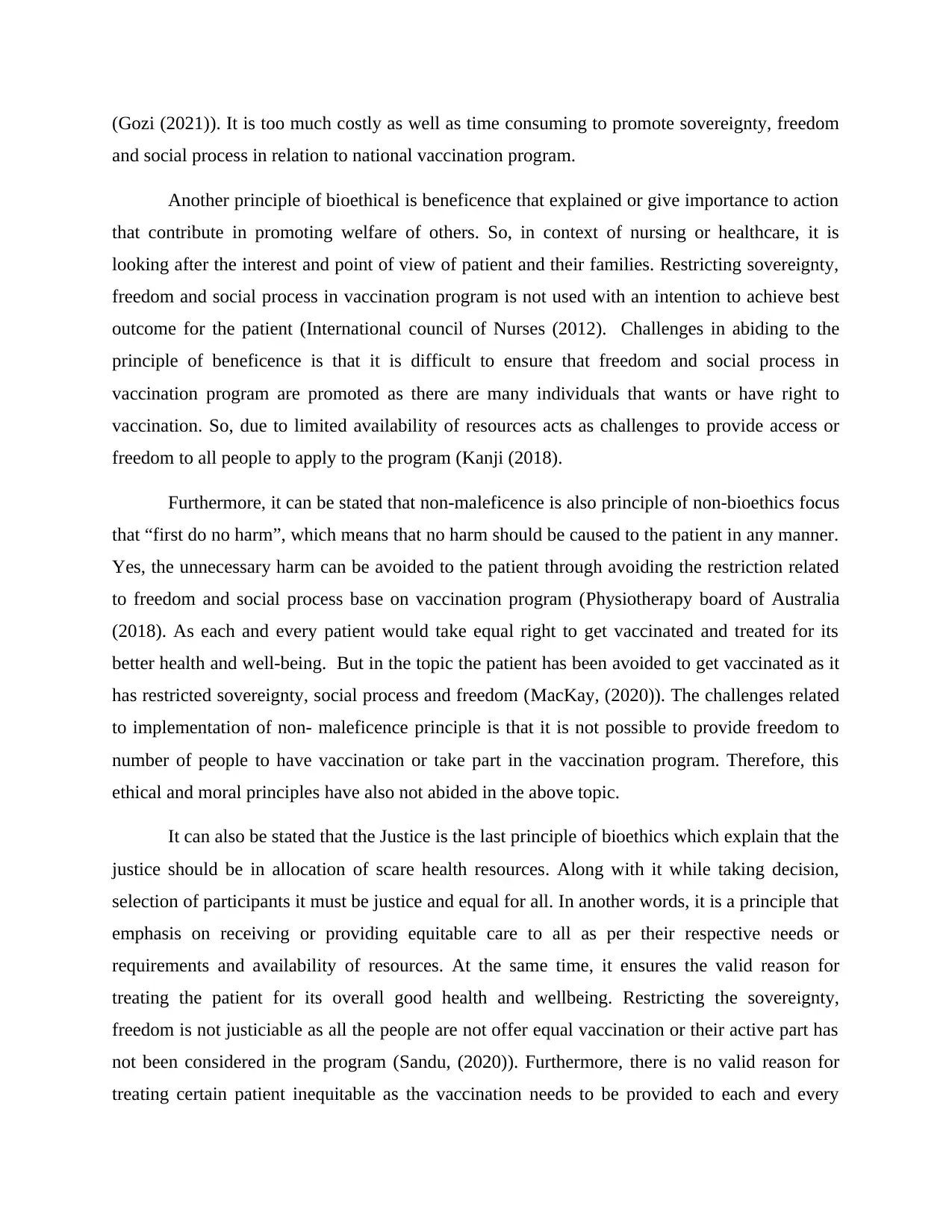
(Gozi (2021)). It is too much costly as well as time consuming to promote sovereignty, freedom
and social process in relation to national vaccination program.
Another principle of bioethical is beneficence that explained or give importance to action
that contribute in promoting welfare of others. So, in context of nursing or healthcare, it is
looking after the interest and point of view of patient and their families. Restricting sovereignty,
freedom and social process in vaccination program is not used with an intention to achieve best
outcome for the patient (International council of Nurses (2012). Challenges in abiding to the
principle of beneficence is that it is difficult to ensure that freedom and social process in
vaccination program are promoted as there are many individuals that wants or have right to
vaccination. So, due to limited availability of resources acts as challenges to provide access or
freedom to all people to apply to the program (Kanji (2018).
Furthermore, it can be stated that non-maleficence is also principle of non-bioethics focus
that “first do no harm”, which means that no harm should be caused to the patient in any manner.
Yes, the unnecessary harm can be avoided to the patient through avoiding the restriction related
to freedom and social process base on vaccination program (Physiotherapy board of Australia
(2018). As each and every patient would take equal right to get vaccinated and treated for its
better health and well-being. But in the topic the patient has been avoided to get vaccinated as it
has restricted sovereignty, social process and freedom (MacKay, (2020)). The challenges related
to implementation of non- maleficence principle is that it is not possible to provide freedom to
number of people to have vaccination or take part in the vaccination program. Therefore, this
ethical and moral principles have also not abided in the above topic.
It can also be stated that the Justice is the last principle of bioethics which explain that the
justice should be in allocation of scare health resources. Along with it while taking decision,
selection of participants it must be justice and equal for all. In another words, it is a principle that
emphasis on receiving or providing equitable care to all as per their respective needs or
requirements and availability of resources. At the same time, it ensures the valid reason for
treating the patient for its overall good health and wellbeing. Restricting the sovereignty,
freedom is not justiciable as all the people are not offer equal vaccination or their active part has
not been considered in the program (Sandu, (2020)). Furthermore, there is no valid reason for
treating certain patient inequitable as the vaccination needs to be provided to each and every
and social process in relation to national vaccination program.
Another principle of bioethical is beneficence that explained or give importance to action
that contribute in promoting welfare of others. So, in context of nursing or healthcare, it is
looking after the interest and point of view of patient and their families. Restricting sovereignty,
freedom and social process in vaccination program is not used with an intention to achieve best
outcome for the patient (International council of Nurses (2012). Challenges in abiding to the
principle of beneficence is that it is difficult to ensure that freedom and social process in
vaccination program are promoted as there are many individuals that wants or have right to
vaccination. So, due to limited availability of resources acts as challenges to provide access or
freedom to all people to apply to the program (Kanji (2018).
Furthermore, it can be stated that non-maleficence is also principle of non-bioethics focus
that “first do no harm”, which means that no harm should be caused to the patient in any manner.
Yes, the unnecessary harm can be avoided to the patient through avoiding the restriction related
to freedom and social process base on vaccination program (Physiotherapy board of Australia
(2018). As each and every patient would take equal right to get vaccinated and treated for its
better health and well-being. But in the topic the patient has been avoided to get vaccinated as it
has restricted sovereignty, social process and freedom (MacKay, (2020)). The challenges related
to implementation of non- maleficence principle is that it is not possible to provide freedom to
number of people to have vaccination or take part in the vaccination program. Therefore, this
ethical and moral principles have also not abided in the above topic.
It can also be stated that the Justice is the last principle of bioethics which explain that the
justice should be in allocation of scare health resources. Along with it while taking decision,
selection of participants it must be justice and equal for all. In another words, it is a principle that
emphasis on receiving or providing equitable care to all as per their respective needs or
requirements and availability of resources. At the same time, it ensures the valid reason for
treating the patient for its overall good health and wellbeing. Restricting the sovereignty,
freedom is not justiciable as all the people are not offer equal vaccination or their active part has
not been considered in the program (Sandu, (2020)). Furthermore, there is no valid reason for
treating certain patient inequitable as the vaccination needs to be provided to each and every
Paraphrase This Document
Need a fresh take? Get an instant paraphrase of this document with our AI Paraphraser
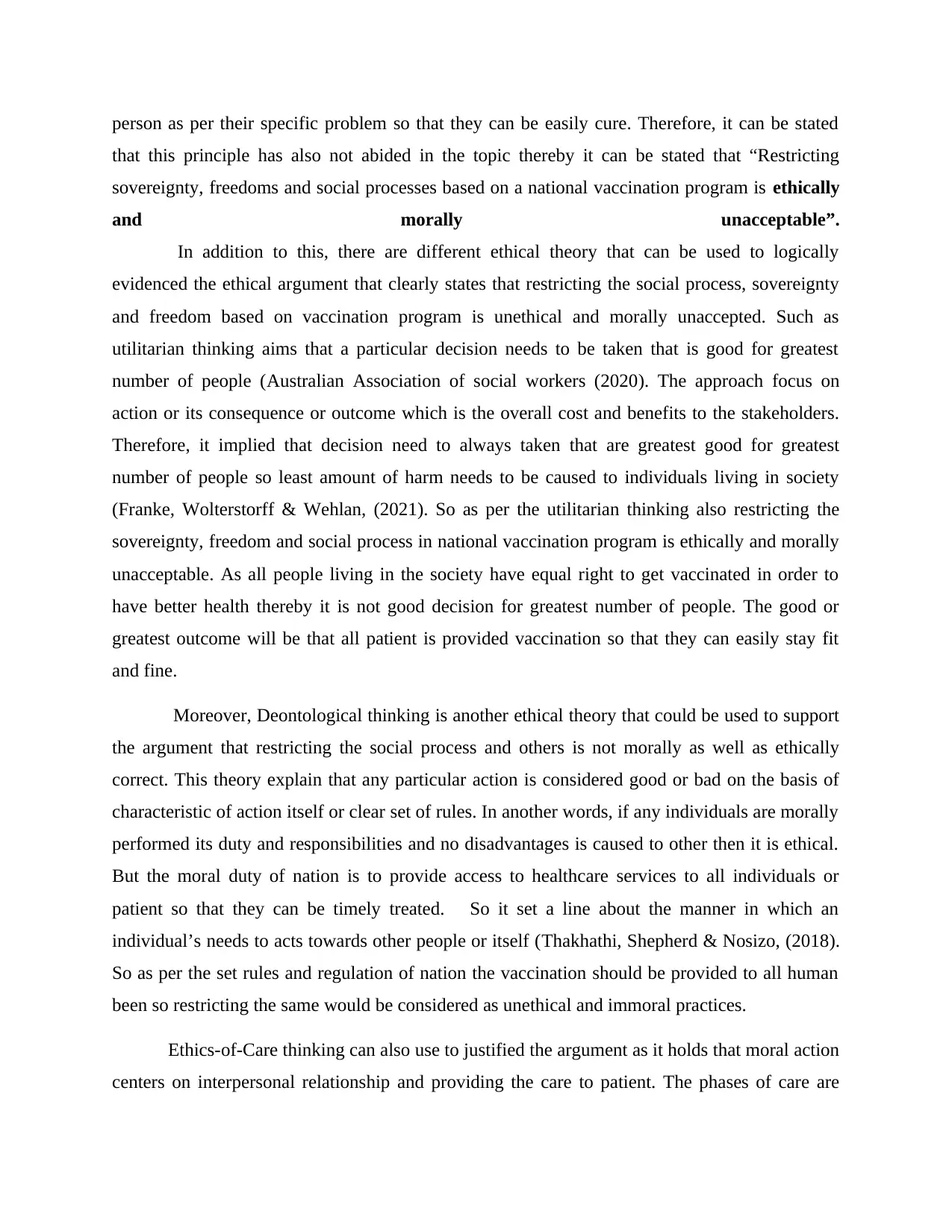
person as per their specific problem so that they can be easily cure. Therefore, it can be stated
that this principle has also not abided in the topic thereby it can be stated that “Restricting
sovereignty, freedoms and social processes based on a national vaccination program is ethically
and morally unacceptable”.
In addition to this, there are different ethical theory that can be used to logically
evidenced the ethical argument that clearly states that restricting the social process, sovereignty
and freedom based on vaccination program is unethical and morally unaccepted. Such as
utilitarian thinking aims that a particular decision needs to be taken that is good for greatest
number of people (Australian Association of social workers (2020). The approach focus on
action or its consequence or outcome which is the overall cost and benefits to the stakeholders.
Therefore, it implied that decision need to always taken that are greatest good for greatest
number of people so least amount of harm needs to be caused to individuals living in society
(Franke, Wolterstorff & Wehlan, (2021). So as per the utilitarian thinking also restricting the
sovereignty, freedom and social process in national vaccination program is ethically and morally
unacceptable. As all people living in the society have equal right to get vaccinated in order to
have better health thereby it is not good decision for greatest number of people. The good or
greatest outcome will be that all patient is provided vaccination so that they can easily stay fit
and fine.
Moreover, Deontological thinking is another ethical theory that could be used to support
the argument that restricting the social process and others is not morally as well as ethically
correct. This theory explain that any particular action is considered good or bad on the basis of
characteristic of action itself or clear set of rules. In another words, if any individuals are morally
performed its duty and responsibilities and no disadvantages is caused to other then it is ethical.
But the moral duty of nation is to provide access to healthcare services to all individuals or
patient so that they can be timely treated. So it set a line about the manner in which an
individual’s needs to acts towards other people or itself (Thakhathi, Shepherd & Nosizo, (2018).
So as per the set rules and regulation of nation the vaccination should be provided to all human
been so restricting the same would be considered as unethical and immoral practices.
Ethics-of-Care thinking can also use to justified the argument as it holds that moral action
centers on interpersonal relationship and providing the care to patient. The phases of care are
that this principle has also not abided in the topic thereby it can be stated that “Restricting
sovereignty, freedoms and social processes based on a national vaccination program is ethically
and morally unacceptable”.
In addition to this, there are different ethical theory that can be used to logically
evidenced the ethical argument that clearly states that restricting the social process, sovereignty
and freedom based on vaccination program is unethical and morally unaccepted. Such as
utilitarian thinking aims that a particular decision needs to be taken that is good for greatest
number of people (Australian Association of social workers (2020). The approach focus on
action or its consequence or outcome which is the overall cost and benefits to the stakeholders.
Therefore, it implied that decision need to always taken that are greatest good for greatest
number of people so least amount of harm needs to be caused to individuals living in society
(Franke, Wolterstorff & Wehlan, (2021). So as per the utilitarian thinking also restricting the
sovereignty, freedom and social process in national vaccination program is ethically and morally
unacceptable. As all people living in the society have equal right to get vaccinated in order to
have better health thereby it is not good decision for greatest number of people. The good or
greatest outcome will be that all patient is provided vaccination so that they can easily stay fit
and fine.
Moreover, Deontological thinking is another ethical theory that could be used to support
the argument that restricting the social process and others is not morally as well as ethically
correct. This theory explain that any particular action is considered good or bad on the basis of
characteristic of action itself or clear set of rules. In another words, if any individuals are morally
performed its duty and responsibilities and no disadvantages is caused to other then it is ethical.
But the moral duty of nation is to provide access to healthcare services to all individuals or
patient so that they can be timely treated. So it set a line about the manner in which an
individual’s needs to acts towards other people or itself (Thakhathi, Shepherd & Nosizo, (2018).
So as per the set rules and regulation of nation the vaccination should be provided to all human
been so restricting the same would be considered as unethical and immoral practices.
Ethics-of-Care thinking can also use to justified the argument as it holds that moral action
centers on interpersonal relationship and providing the care to patient. The phases of care are
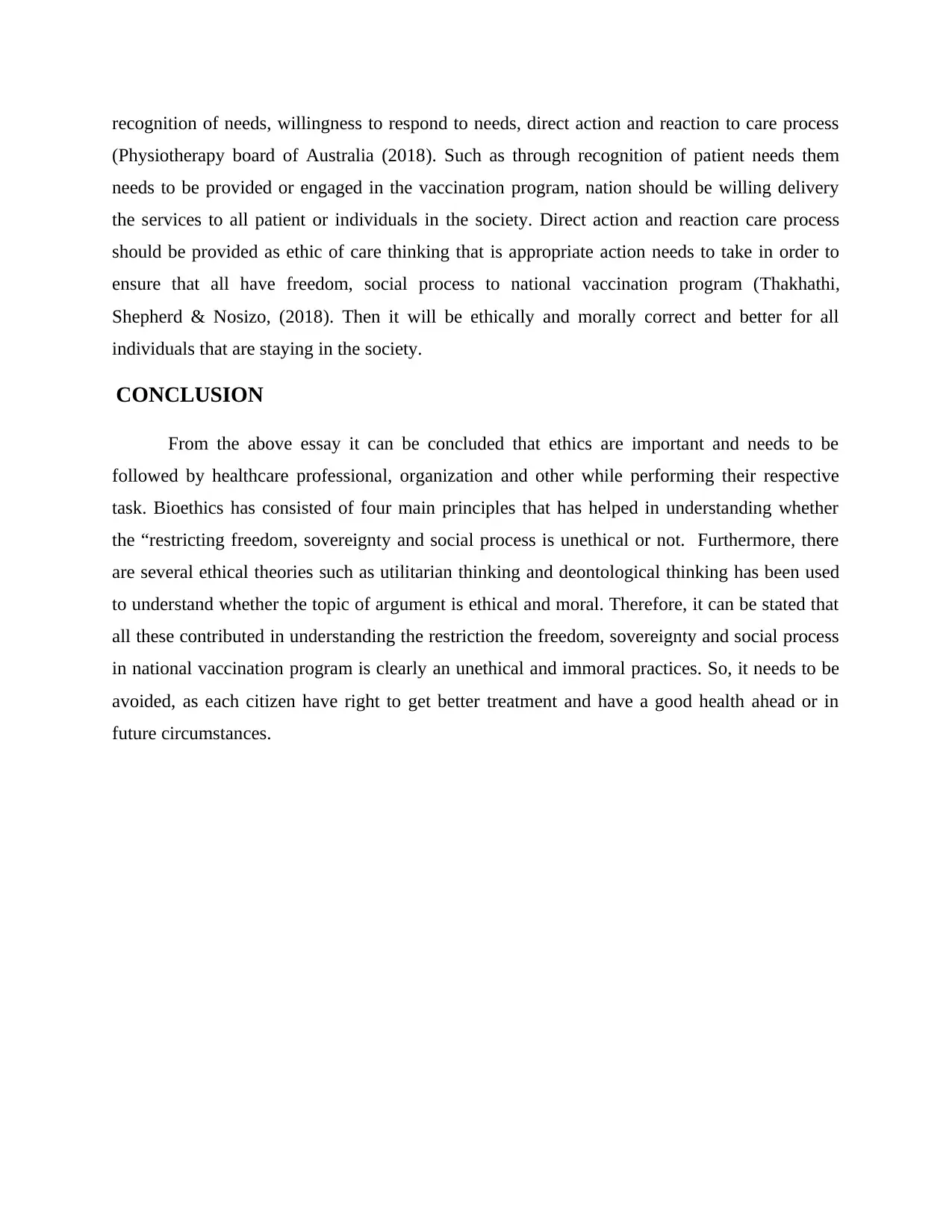
recognition of needs, willingness to respond to needs, direct action and reaction to care process
(Physiotherapy board of Australia (2018). Such as through recognition of patient needs them
needs to be provided or engaged in the vaccination program, nation should be willing delivery
the services to all patient or individuals in the society. Direct action and reaction care process
should be provided as ethic of care thinking that is appropriate action needs to take in order to
ensure that all have freedom, social process to national vaccination program (Thakhathi,
Shepherd & Nosizo, (2018). Then it will be ethically and morally correct and better for all
individuals that are staying in the society.
CONCLUSION
From the above essay it can be concluded that ethics are important and needs to be
followed by healthcare professional, organization and other while performing their respective
task. Bioethics has consisted of four main principles that has helped in understanding whether
the “restricting freedom, sovereignty and social process is unethical or not. Furthermore, there
are several ethical theories such as utilitarian thinking and deontological thinking has been used
to understand whether the topic of argument is ethical and moral. Therefore, it can be stated that
all these contributed in understanding the restriction the freedom, sovereignty and social process
in national vaccination program is clearly an unethical and immoral practices. So, it needs to be
avoided, as each citizen have right to get better treatment and have a good health ahead or in
future circumstances.
(Physiotherapy board of Australia (2018). Such as through recognition of patient needs them
needs to be provided or engaged in the vaccination program, nation should be willing delivery
the services to all patient or individuals in the society. Direct action and reaction care process
should be provided as ethic of care thinking that is appropriate action needs to take in order to
ensure that all have freedom, social process to national vaccination program (Thakhathi,
Shepherd & Nosizo, (2018). Then it will be ethically and morally correct and better for all
individuals that are staying in the society.
CONCLUSION
From the above essay it can be concluded that ethics are important and needs to be
followed by healthcare professional, organization and other while performing their respective
task. Bioethics has consisted of four main principles that has helped in understanding whether
the “restricting freedom, sovereignty and social process is unethical or not. Furthermore, there
are several ethical theories such as utilitarian thinking and deontological thinking has been used
to understand whether the topic of argument is ethical and moral. Therefore, it can be stated that
all these contributed in understanding the restriction the freedom, sovereignty and social process
in national vaccination program is clearly an unethical and immoral practices. So, it needs to be
avoided, as each citizen have right to get better treatment and have a good health ahead or in
future circumstances.
⊘ This is a preview!⊘
Do you want full access?
Subscribe today to unlock all pages.

Trusted by 1+ million students worldwide
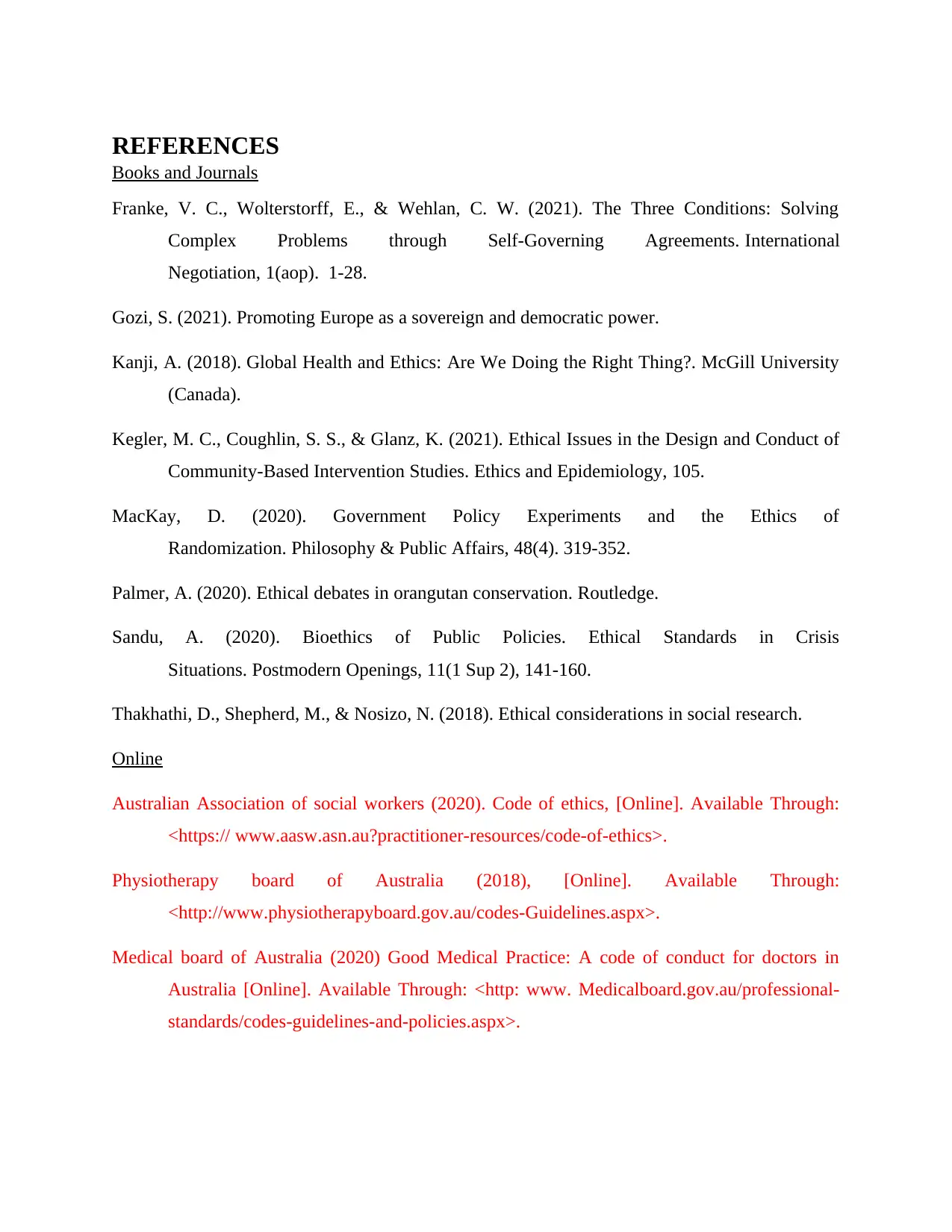
REFERENCES
Books and Journals
Franke, V. C., Wolterstorff, E., & Wehlan, C. W. (2021). The Three Conditions: Solving
Complex Problems through Self-Governing Agreements. International
Negotiation, 1(aop). 1-28.
Gozi, S. (2021). Promoting Europe as a sovereign and democratic power.
Kanji, A. (2018). Global Health and Ethics: Are We Doing the Right Thing?. McGill University
(Canada).
Kegler, M. C., Coughlin, S. S., & Glanz, K. (2021). Ethical Issues in the Design and Conduct of
Community-Based Intervention Studies. Ethics and Epidemiology, 105.
MacKay, D. (2020). Government Policy Experiments and the Ethics of
Randomization. Philosophy & Public Affairs, 48(4). 319-352.
Palmer, A. (2020). Ethical debates in orangutan conservation. Routledge.
Sandu, A. (2020). Bioethics of Public Policies. Ethical Standards in Crisis
Situations. Postmodern Openings, 11(1 Sup 2), 141-160.
Thakhathi, D., Shepherd, M., & Nosizo, N. (2018). Ethical considerations in social research.
Online
Australian Association of social workers (2020). Code of ethics, [Online]. Available Through:
<https:// www.aasw.asn.au?practitioner-resources/code-of-ethics>.
Physiotherapy board of Australia (2018), [Online]. Available Through:
<http://www.physiotherapyboard.gov.au/codes-Guidelines.aspx>.
Medical board of Australia (2020) Good Medical Practice: A code of conduct for doctors in
Australia [Online]. Available Through: <http: www. Medicalboard.gov.au/professional-
standards/codes-guidelines-and-policies.aspx>.
Books and Journals
Franke, V. C., Wolterstorff, E., & Wehlan, C. W. (2021). The Three Conditions: Solving
Complex Problems through Self-Governing Agreements. International
Negotiation, 1(aop). 1-28.
Gozi, S. (2021). Promoting Europe as a sovereign and democratic power.
Kanji, A. (2018). Global Health and Ethics: Are We Doing the Right Thing?. McGill University
(Canada).
Kegler, M. C., Coughlin, S. S., & Glanz, K. (2021). Ethical Issues in the Design and Conduct of
Community-Based Intervention Studies. Ethics and Epidemiology, 105.
MacKay, D. (2020). Government Policy Experiments and the Ethics of
Randomization. Philosophy & Public Affairs, 48(4). 319-352.
Palmer, A. (2020). Ethical debates in orangutan conservation. Routledge.
Sandu, A. (2020). Bioethics of Public Policies. Ethical Standards in Crisis
Situations. Postmodern Openings, 11(1 Sup 2), 141-160.
Thakhathi, D., Shepherd, M., & Nosizo, N. (2018). Ethical considerations in social research.
Online
Australian Association of social workers (2020). Code of ethics, [Online]. Available Through:
<https:// www.aasw.asn.au?practitioner-resources/code-of-ethics>.
Physiotherapy board of Australia (2018), [Online]. Available Through:
<http://www.physiotherapyboard.gov.au/codes-Guidelines.aspx>.
Medical board of Australia (2020) Good Medical Practice: A code of conduct for doctors in
Australia [Online]. Available Through: <http: www. Medicalboard.gov.au/professional-
standards/codes-guidelines-and-policies.aspx>.
Paraphrase This Document
Need a fresh take? Get an instant paraphrase of this document with our AI Paraphraser
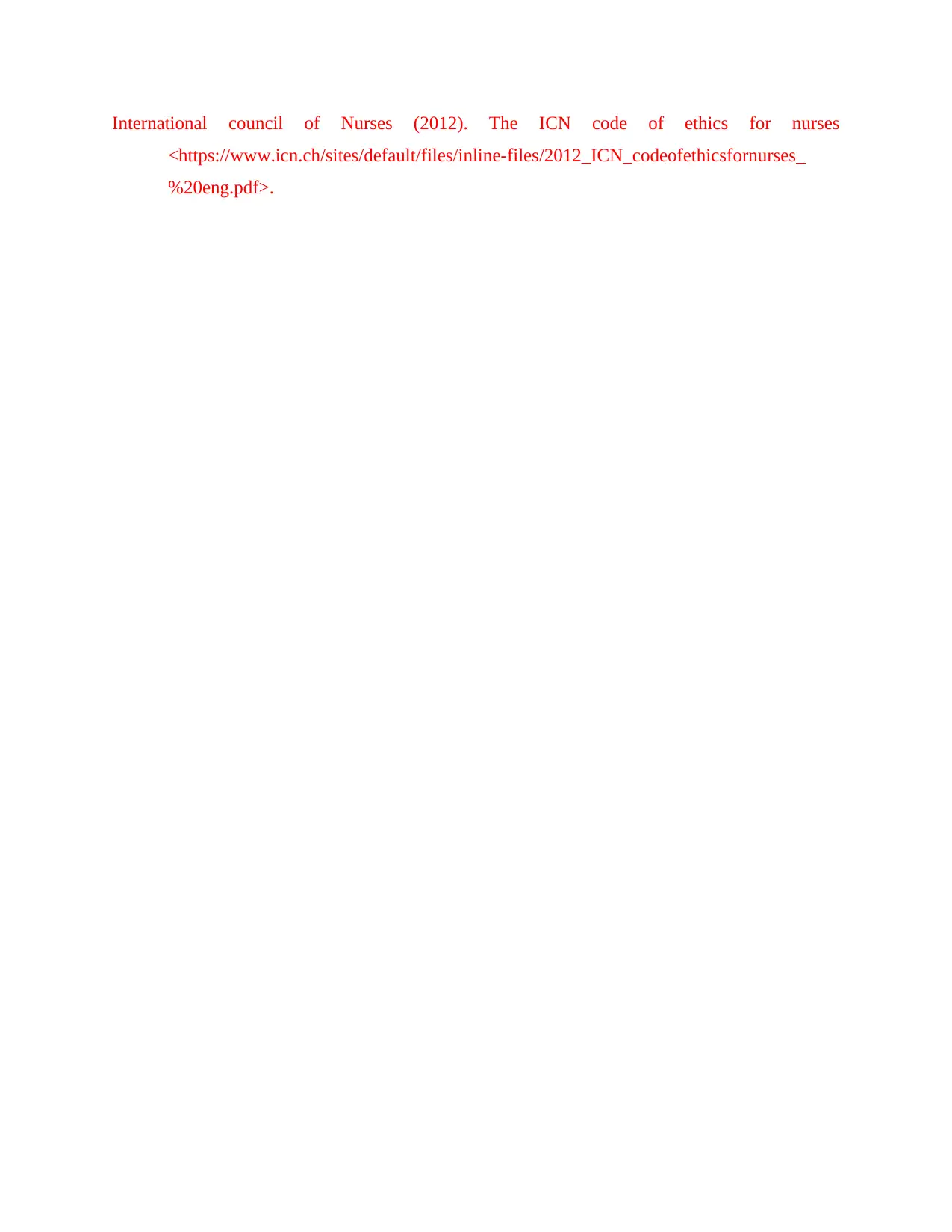
International council of Nurses (2012). The ICN code of ethics for nurses
<https://www.icn.ch/sites/default/files/inline-files/2012_ICN_codeofethicsfornurses_
%20eng.pdf>.
<https://www.icn.ch/sites/default/files/inline-files/2012_ICN_codeofethicsfornurses_
%20eng.pdf>.
1 out of 8
Related Documents
Your All-in-One AI-Powered Toolkit for Academic Success.
+13062052269
info@desklib.com
Available 24*7 on WhatsApp / Email
![[object Object]](/_next/static/media/star-bottom.7253800d.svg)
Unlock your academic potential
Copyright © 2020–2026 A2Z Services. All Rights Reserved. Developed and managed by ZUCOL.





